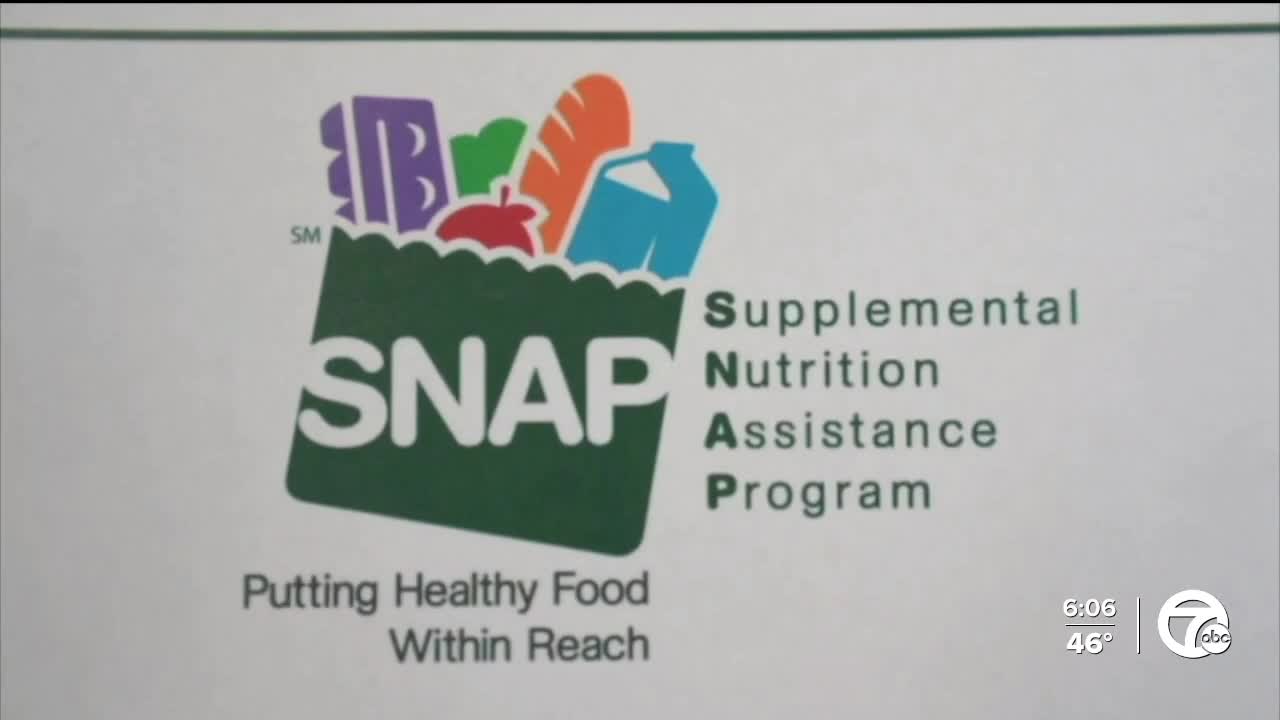DETROIT (WXYZ) — Starting Wednesday, a portion of the Supplemental Nutrition Assistance Program, or SNAP, will end.
The federal emergency fund was allocated during the pandemic, and last year Congress passed a law to end the emergency allotments by February 2023.
While most states have already stopped issuing the extra amount, the benefit will end Wednesday in Michigan.
According to the Department of Health and Human Services, the move is expected to impact approximately 1.3 million Michiganders.
One of them is 29-year-old Jessica Burrell, a single mom living in Detroit. With four girls and two boys, Burrell must always ensure enough food is stocked for all her kids.
“Juices, waters, you know things to take to school, and essential items adds up,” Burrell said.
But starting March 1, Burrell will have to drastically cut her shopping list.
“It's going to be the juices, the pop, the candy, the rice crispies, the Pop-Tarts, none of this will be on the table,” Burrell said.
Since 2020, Burrell has been getting $1,436 in food assistance. Moving forward, it will be $943.
“When you have a 1-year-old and a 2-year-old that relies on milk, eggs and bread, things like that, and things are going up and so hard, especially if you don't have a job and can't get a job at the moment,” Burrell said.
When asked if she would be able to survive without food assistance programs, Burrell said “Honestly, no because the cost of food, the rent, the utilities the things you have to pay when you are already relying on the state.”
According to the Center on Budget and Policy Priorities, those impacted will see their benefits drop by at least $95 a month. Meanwhile, Zaman International's Najah Bazzy says folks in need will now rely heavily on food pantries like hers.
"For all nonprofit, our goal would be to not to turn people away. But at some point in time, it's a capacity issue. So as southeast Michigan receives more and more refugees, you know, the poverty line continues to stay where it's at. With the economy being what it is, the variables are all there to make life for a non-profit much more difficult," said Bazzy, founder and CEO of Zaman International.
Before the pandemic, Inkster-based Zaman International was assisting 300 people with an annual budget of $108,000. Now, they are serving around 1,000 individuals, and the budget is gone up to $180,000 annually.
"We will figure it out because we have no choice but to figure it out. We hope our donor and other partners will step up to fill the gap,” Bazzy said.
The Michigan Bridges and the pre-pandemic SNAP Program are still active. Meanwhile, people who need further food assistance can find a list of food banks and other agencies in their local communities by visiting michigan.gov/MIBridges under the “Explore Resources” tab or by calling 211.
Also, to donate to Zaman International, visit zamaninternational.org/.




